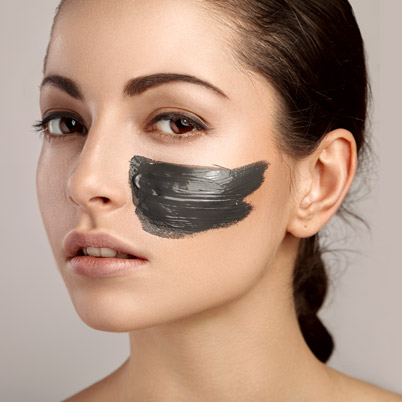Activated charcoal has been around forever. It's used in hospitals to treat overdoses of drugs like aspirin, acetaminophen, opium, cocaine, and morphine, says Niket Sonpal, M.D., assistant clinical professor of medicine at Touro College of Medicine. "Activated charcoal is a potent natural treatment used to trap toxins and chemicals in the body, allowing them to be flushed out so the body doesn't reabsorb them," says Sonpal. This isn't the same charcoal you'd use on a BBQ, though.
While activated charcoal ice cream -- or pizza (yes, it exists) -- makes for a pretty pic, there are absolutely no health benefits to eating anything with this ingredient, says Sonpal. The thing is, the whole detox craze is basically BS. "The idea that activated charcoal will cleanse your body from toxins doesn't make sense, as it will only bind to things in your stomach and small intestine -- not any 'toxins' that have built up in your body," says Sonpal. "People think [their bodies] are full of toxins, but they really aren't."
Image via foodrepublic.com
Image via foodrepublic.com
"Activated charcoal does have an amazing ability to absorb other materials, which is why it can be helpful in cases of food or chemical poisoning," says Lindsey Pasieka, investigator for ConsumerSafety.org. "However, studies have shown that continued use of activated charcoal can hinder, and in some cases halt, the effectiveness of other medications by absorbing them before they reach the circulatory system."
Activated charcoal can also cause constipation, stomach pain, and even intestinal blockages, says Simpson. So yeah, maybe not worth the Snapchat views. That being said, if you're willing to take the risk, make sure the charcoal you're eating or drinking is coconut-derived, says Sonpal.
Image via vix.com
Activated charcoal can also cause constipation, stomach pain, and even intestinal blockages, says Simpson. So yeah, maybe not worth the Snapchat views. That being said, if you're willing to take the risk, make sure the charcoal you're eating or drinking is coconut-derived, says Sonpal.
Image via vix.com
Chances are, you've seen quite a few black-hued beauty products at the drugstore and Sephora. The good news is, when it comes to your skin, charcoal proves to be a whole lot more useful.
"Activated charcoal has both antibacterial and antifungal properties," says Debra Jaliman, M.D., dermatologist in New York City and author of "Skin Rules." "It helps unclog pores, and it absorbs environmental pollutants, oil, and dirt off the skin." If you have oily skin, you may find charcoal to be particularly useful, as it helps rid the skin of excess oil -- and this can even reduce acne, says Jaliman. She recommends looking for it in a face mask. Since it sits on your face longer than, say, face wash, it's more effective at drawing out impurities from your pores.
A few to try...
Image via charcoalmask.co
"Activated charcoal has both antibacterial and antifungal properties," says Debra Jaliman, M.D., dermatologist in New York City and author of "Skin Rules." "It helps unclog pores, and it absorbs environmental pollutants, oil, and dirt off the skin." If you have oily skin, you may find charcoal to be particularly useful, as it helps rid the skin of excess oil -- and this can even reduce acne, says Jaliman. She recommends looking for it in a face mask. Since it sits on your face longer than, say, face wash, it's more effective at drawing out impurities from your pores.
A few to try...
Image via charcoalmask.co
There's a reason why this peel-off mask is uber-popular among skin care junkies: It packs a serious one-two-three punch. Formulated with activated charcoal, calcium montmorillonite clay, vitamin C, and rosemary leaf extract, it absorbs excess oils, exfoliates skin, shrinks the look of pores, brightens, and soothes inflammation. Plus, it peels off -- which is pretty effing cool.
Buy now
Buy now




